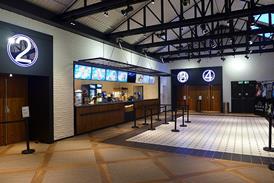
The BBC has made £1bn of savings over the past five years as TV content spend rebounded to a pre-pandemic £1.8bn last year.
In its annual report, published today (July 12), the corporation revealed it made savings of £274m in 2021/2022, broadly in line with the previous year’s £272m.
There was a net reduction of 409 public service roles (to 17, 781) over the 12-month period, and the cumulative five-year cuts have also been delivered through production efficiencies, improved cashflow terms with producers and other operational efficiencies.
Further plans to reduce costs and streamline the business will be set out soon, after the number of senior leaders (paid £50,000-plus) fell slightly to 234, from 241.
The cuts have not been made at the expense of programming however.
Total content spend rose 17% year-on-year to £2.95bn, with TV accounting for £1.8bn, up from £1.4bn the previous year. This was partially due to the additional costs incurred by the postponement of the 2020 Tokyo Summer Olympics and European Football Championship.
Drama spend rebounded 30% to £376m, having slumped by 20% to £289m the previous year.
Overall, BBC income jumped to £5.3bn, from £5bn, with licence fee revenues broadly flat at £3.8bn. The gains were primarily made by BBC Studios, which improved its revenues by 30% to £1.6bn and returned a record £226m in profit, up 50% year-on-year.
The performance takes the producer / distributor past its £1.2bn in returns target, set for the first five years of the charter.
Director general Tim Davie said: “It is disappointing to face a two-year freeze on our licence fee…presenting us with significant challenges, especially given that the BBC’s income for UK services is already 30% lower than a decade ago in real terms.
“However we have financial stability in the UK for the rest of the current charter period. Alongside the potential to grow commercial revenues, this means the BBC can focus on the future and on delivering against our clear priorities.”
This story first appeared on Screen’s sister site Broadcast.

























No comments yet